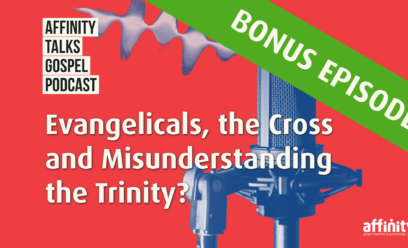Halloween: Harmless fun or trivialising evil?

Recently, a children’s soft play area in Gloucestershire was forced to apologise after using black sacks resembling body bags as part of their Halloween decorations. While the story is extreme, it highlights Halloween’s peculiar obsession with death and darkness. This fascination with spiritual evil sits awkwardly with our wider culture, which is otherwise focused on protecting children from harm, whether from unhealthy foods or inappropriate internet content. Yet when Halloween arrives, all these concerns seem to be set aside, and we find ourselves, to some degree, celebrating spirits, devils, and forces of evil. In a largely secular society, this is a strange cultural contradiction.
The Christian dilemma with Halloween
Halloween often involves children dressing up in ghostly, devilish, or even sci-fi costumes, knocking on doors with ‘trick or treat’ offers, and attending themed parties. It has evolved into a major festival, with the UK expected to spend around £700 million on Halloween products this year. However, Christians in the UK tend to be cautious or even outright hostile towards the event.
This isn’t because we believe, like the Celts, that the dead can return to cause harm on this night. Nor do we feel the need to ‘hallow’ (honour) deceased Christians in a way that suggests they need help escaping purgatory. And we certainly don’t think that most people celebrating Halloween are devil worshippers. For the vast majority, it’s seen as harmless fun, like Bonfire Night or even Christmas.
At the heart of our hesitation, though, is a discomfort with the way Halloween either celebrates or trivialises the devil, evil spirits, and the souls of the dead. While the costumes and rituals may seem meaningless, Christians believe that the spiritual realm is real and should not be treated lightly. Halloween, in its modern form, can only be celebrated so freely because people no longer take spiritual evil seriously.
Recovering a biblical understanding of evil
If we’re honest perhaps it also exposes our own failure at times to take the reality of the spiritual world seriously. In practice, we can often marginalise or demythologise the important biblical theme of spiritual forces – the devil, demons, their spiritual power and evil intent. Rather than reacting against Halloween just as a matter of principle, it might be better to take the opportunity to consider more carefully what the Bible teaches about spiritual evil. We need to regain a proper biblical theology of Satan and the spiritual powers of evil.
Some Christians respond to Halloween by seeing it as an opportunity for witness and relationship-building. For example, they might generously give out treats to children at their doors and then hand out gospel tracts, explaining that the ‘best treat’ is Jesus, who has triumphed over evil. This approach has merit, but in a culture that doesn’t take evil seriously, how much of an impact can it really have?
Others try to ‘redeem’ the occasion by hosting alternative events like light parties or superhero-themed gatherings on Halloween night. These can be valuable, but they may risk sending the message that we’re simply trying to compete with Halloween rather than offering a distinctly Christian alternative. The subtleties of rebranding Halloween might be lost on children, who may feel they’re missing out.
Could it be that Halloween offers a unique opportunity to model Christian discipleship in a way that involves sacrifice? As families, we can use this night to teach our children that following Jesus sometimes means standing apart from the world (1 Peter 2:11-12). Halloween might be a time to show that we are ‘strangers and aliens’ in a culture that trivialises evil.
Whatever your approach, Halloween provides a great opportunity to talk with your family and friends about the reality of evil and the triumph of Christ. Rather than merely reacting against the celebration, let’s take the time to consider what we believe about spiritual evil – and how Christ’s victory offers real hope in a world that often mocks what it does not understand.




